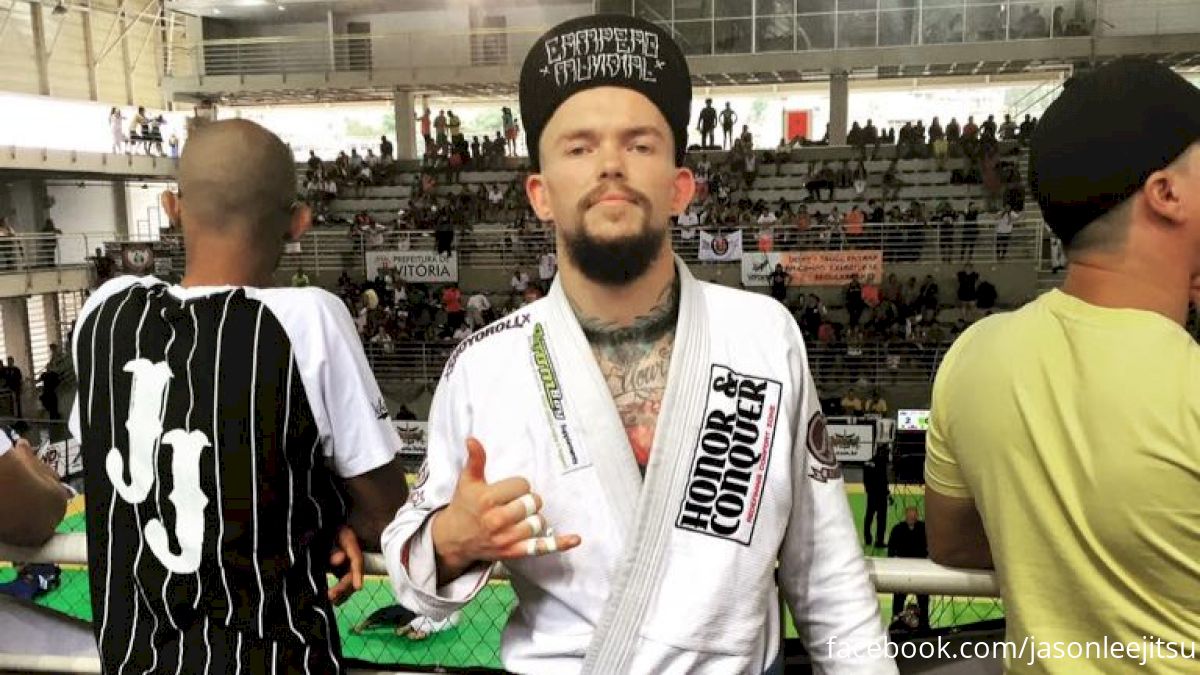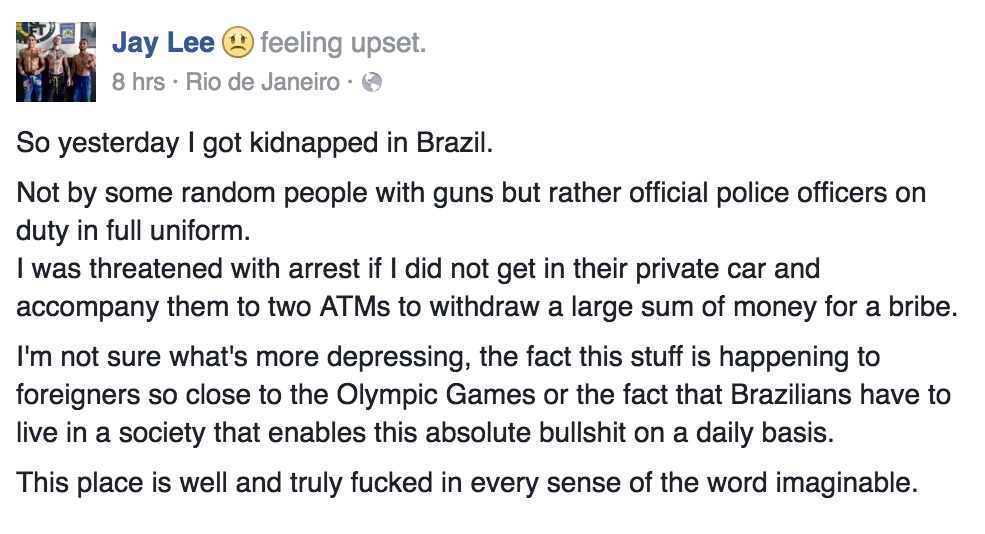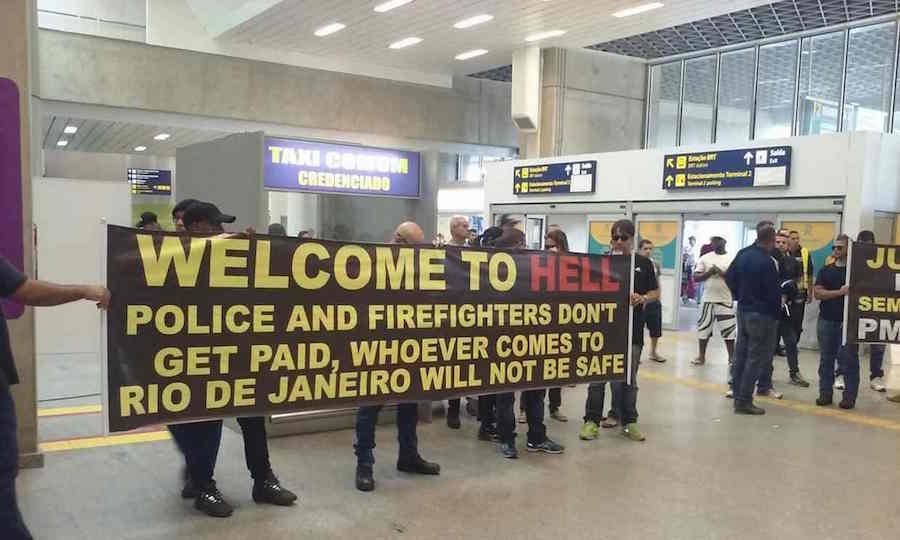New Zealander Jiu-Jitsu Athlete Kidnapped, Robbed By Brazilian Police
New Zealander Jiu-Jitsu Athlete Kidnapped, Robbed By Brazilian Police
A 27-year-old jiu-jitsu practitioner from New Zealand was kidnapped and robbed by police in Rio de Janeiro this weekend, less than two weeks before the 2016

A 27-year-old jiu-jitsu practitioner from New Zealand was kidnapped and robbed by police in Rio de Janeiro this weekend, less than two weeks before the 2016 Rio Olympics are due to begin in the city.
Jason Lee, a blue belt from Wellington, New Zealand, was temporarily detained by military police while driving back from a local jiu-jitsu competition.
He was driving along a highway near the international airport, through which thousands of visitors will pass during the 2016 Rio Olympic Games in August and September.
The two motorbike cops, who were both armed, told Lee that he had broken local traffic laws by driving a rental car while not in possession of his passport.
Lee was then taken by the cops to multiple ATMs and forced to withdraw money totaling 2000 Brazilian Reais (U.S. $614).
The police avoided by seen by security cameras and warned him not to report the incident, telling him, "You can't say anything to anyone about this, not a word."

Lee declined to give further statement beyond what he has already said for fear of reprisal from the Rio military police.
The incident was first on reported on Stuff.co.nz and was later picked up by The New Zealand Herald, the country's largest national newspaper.
"I decided to pack up my life and move here to pursue my dream of being a professional athlete and training in Brazilian jiu-jitsu full-time at one of the best gyms in the world," he wrote in a column for a New Zealand local newspaper.
It is common for foreign jiu-jitsu athletes to visit Rio de Janeiro for varying periods of time to train with high-level teams and coaches.
Numerous sports tourism companies operate hostels and guided tours for practitioners looking to train jiu-jitsu in Brazil.
FloGrappling's own senior editor Hywel Teague, a jiu-jitsu black belt, is a British citizen who has been residing in Brazil for over five years.
Last month, two members of the Australian Paralympic sailing team were robbed at gunpoint by two men near the Olympic park.
Controversy has plagued the city in the run-up to the Olympic Games with concerns over security, health and welfare of athletes due to water pollution, inadequate facilities for visitors in the Olympic village, and an overall lack of preparedness to handle the huge influx of visitors during the Games period.
Brazil is currently in a deep economic recession and Rio de Janeiro announced it was in a state of financial emergency in June.
Police officers recently held a protest in the main international airport and held banners that said visitors to the city would not be safe.

The state governor requested emergency financial aid from the federal government to pay public servants such as police officers, firefighters, teachers and nurses.
Brazilian police officers are notoriously corrupt, ranking 76 among 168 countries in the 2015 Corruption Perceptions Index published by Transparency International.
Gangs known as "militias" made up of policemen, firemen, guards, prison guards, and military soldiers vie with drug traffickers for control of neighborhoods in the city, and impose illegal taxes upon residents for public services such as water, gas, electricity and internet.
Militias in Rio de Janeiro are so powerful, that they recently imposed rules upon soldiers from the Brazilian National Guard drafted to work security at the 2016 Rio Olympic Games to prevent them from installing internet in their temporary accommodation west of the city.
Jason Lee, a blue belt from Wellington, New Zealand, was temporarily detained by military police while driving back from a local jiu-jitsu competition.
What did you guys get up to yesterday?
— Jason Lee (@jasonleejitsu) July 24, 2016
I got kidnapped. Go Olympics!#Rio2016
He was driving along a highway near the international airport, through which thousands of visitors will pass during the 2016 Rio Olympic Games in August and September.
The two motorbike cops, who were both armed, told Lee that he had broken local traffic laws by driving a rental car while not in possession of his passport.
Kidnapped and Robbed By Rio de Janeiro Military Police
The two military police officers forced him to drive the wrong way down a highway before transferring him into an unmarked, non-police vehicle.Lee was then taken by the cops to multiple ATMs and forced to withdraw money totaling 2000 Brazilian Reais (U.S. $614).
The police avoided by seen by security cameras and warned him not to report the incident, telling him, "You can't say anything to anyone about this, not a word."

Fear of Reprisals
Lee later went to a tourist police station that night, where the officer taking the statement double-checked if he was sure he wanted to make a complaint due to the notorious reputation of the Rio military police, saying, "Even we're afraid of them."Lee declined to give further statement beyond what he has already said for fear of reprisal from the Rio military police.
The incident was first on reported on Stuff.co.nz and was later picked up by The New Zealand Herald, the country's largest national newspaper.
Living and Training Jiu-Jitsu in Rio de Janeiro
Lee has been living in Rio de Janeiro for the last 10 months. He trains with GF Team, the powerhouse jiu-jitsu squad that produced champions such as Rodolfo Vieira, Victor Silverio, Patrick Gaudio, Gutemberg Pereira and many more."I decided to pack up my life and move here to pursue my dream of being a professional athlete and training in Brazilian jiu-jitsu full-time at one of the best gyms in the world," he wrote in a column for a New Zealand local newspaper.
It is common for foreign jiu-jitsu athletes to visit Rio de Janeiro for varying periods of time to train with high-level teams and coaches.
Numerous sports tourism companies operate hostels and guided tours for practitioners looking to train jiu-jitsu in Brazil.
FloGrappling's own senior editor Hywel Teague, a jiu-jitsu black belt, is a British citizen who has been residing in Brazil for over five years.
Crime and the 2016 Rio Olympics
Security is a major concern among visitors to Rio de Janeiro and a number of recent incidents have brought this sharply into focus.Last month, two members of the Australian Paralympic sailing team were robbed at gunpoint by two men near the Olympic park.
Controversy has plagued the city in the run-up to the Olympic Games with concerns over security, health and welfare of athletes due to water pollution, inadequate facilities for visitors in the Olympic village, and an overall lack of preparedness to handle the huge influx of visitors during the Games period.
Brazil is currently in a deep economic recession and Rio de Janeiro announced it was in a state of financial emergency in June.
Police officers recently held a protest in the main international airport and held banners that said visitors to the city would not be safe.

The state governor requested emergency financial aid from the federal government to pay public servants such as police officers, firefighters, teachers and nurses.
Brazilian police officers are notoriously corrupt, ranking 76 among 168 countries in the 2015 Corruption Perceptions Index published by Transparency International.
Gangs known as "militias" made up of policemen, firemen, guards, prison guards, and military soldiers vie with drug traffickers for control of neighborhoods in the city, and impose illegal taxes upon residents for public services such as water, gas, electricity and internet.
Militias in Rio de Janeiro are so powerful, that they recently imposed rules upon soldiers from the Brazilian National Guard drafted to work security at the 2016 Rio Olympic Games to prevent them from installing internet in their temporary accommodation west of the city.